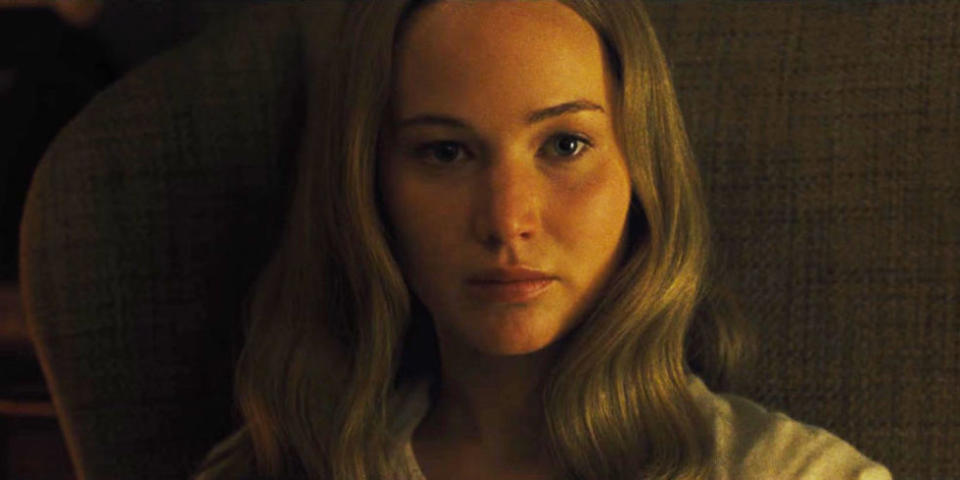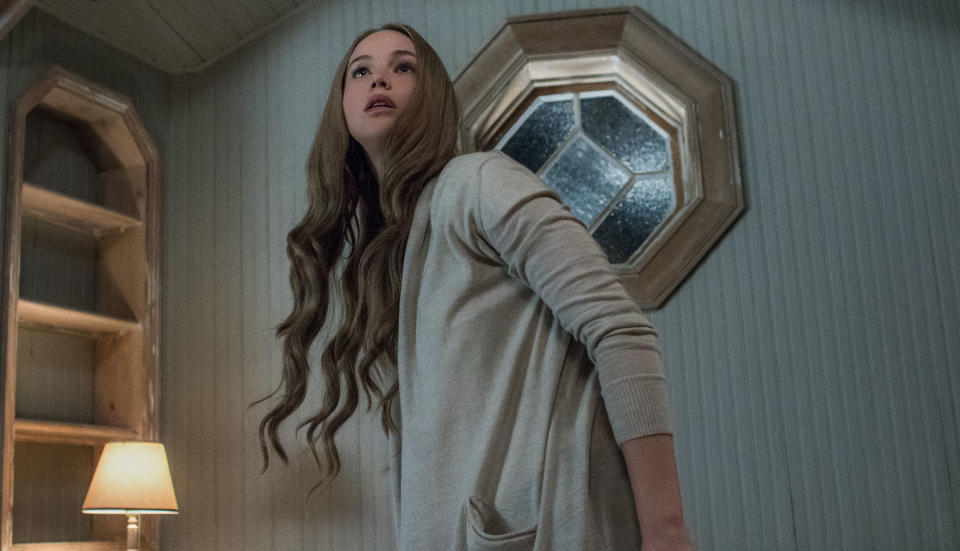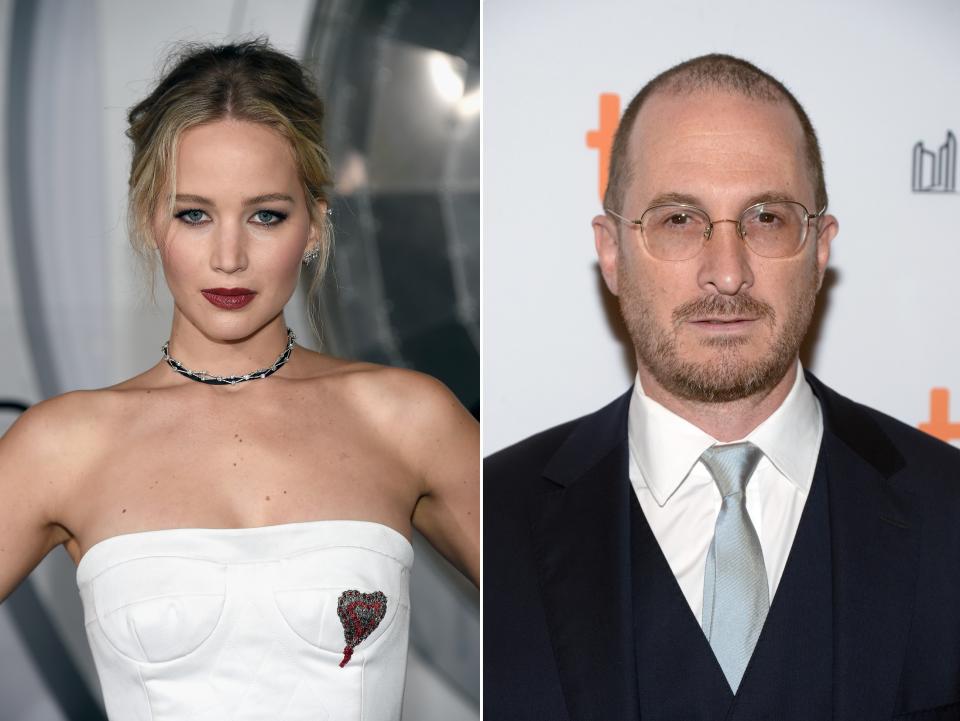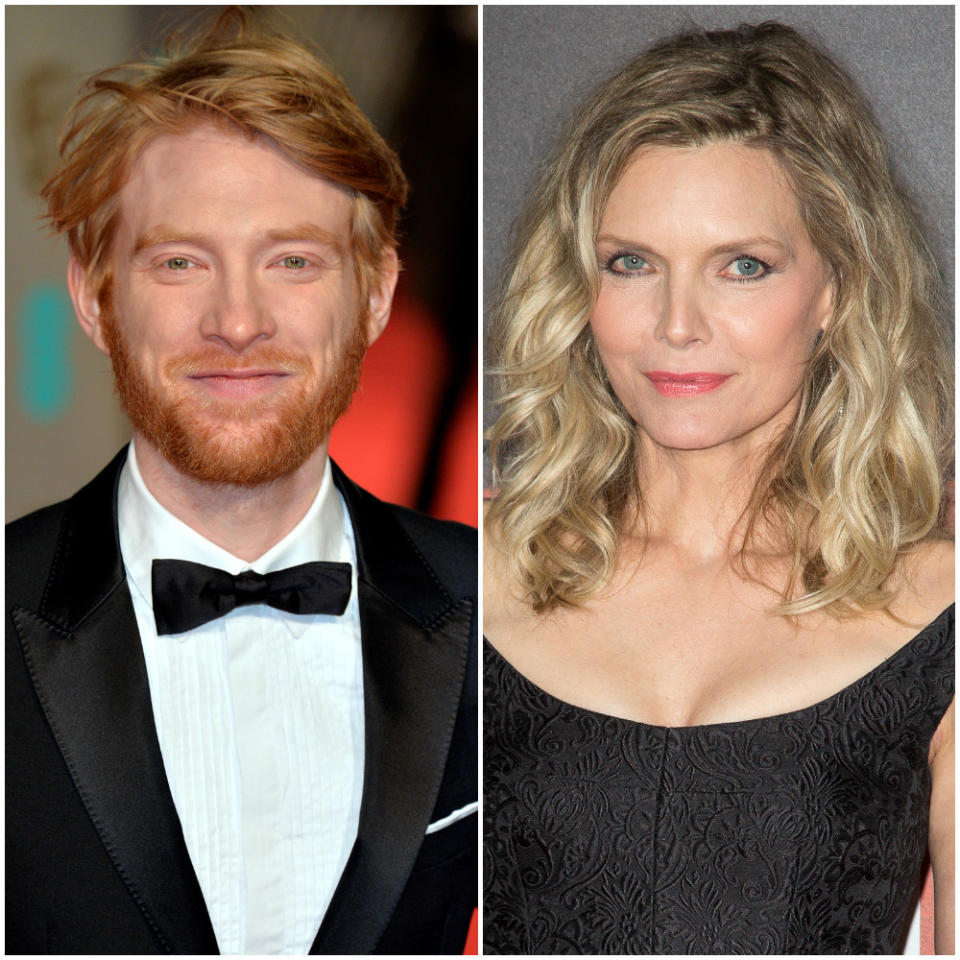Here's what mother!'s WTF ending really means

mother! caused an uproar when it premiered in Venice, with some critics applauding but most booing. It seems the film has produced a similar reaction following its opening weekend, with some audiences proclaiming it a masterpiece, and others wondering WTF they just watched.
The end result? The dreaded 'F' rating from audience polling service CinemaScore (which usually means box office death) and an official statement from Paramount explaining what they were thinking.
"This movie is very audacious and brave. You are talking about a director at the top of his game, and an actress at the top of her game. They made a movie that was intended to be bold," says Paramount's worldwide president of marketing and distribution Megan Colligan.
"We don't want all movies to be safe. And it's okay if some people don't like it."

Related: mother! review: The most batshit crazy studio movie of the year so far
It's also okay if some people don't get it.
mother! is super weird, unlike anything a major studio has put out this year (possibly this decade), a film that gets more surreal and experimental with each passing minute.
According to Darren Aronofksy, mother!'s director, the film has a very simple, fixed meaning, which a lot of people haven't actually picked up on. It's an unusual move for a director to be so open about what a film means to them, with most preferring to leave it up to the audience to decide.
Because, like all great art, mother! is open to interpretation, with different people finding different things in the film's poetic symbolism. And none of them are wrong (okay, maybe some of them are, but, you know, there's no accounting for taste or political leanings). A thing can have two or more meanings at the same time – look at The Big Lebowski, a bowling movie about the Gulf War.
We're going to go through the various different takes on mother! we've encountered, but if you don't see your reading here, don't worry – it's still totally valid.
It probably goes without saying that MASSIVE SPOILERS follow, but we're saying it anyway.
So, mother! – WTF did it mean?
1. It's about the creation of art

Throughout mother! Javier Bardem's character 'Him' struggles with maintaining a career and family. This is something many creative types have difficulty with – at least according to the movies – often having to sacrifice a traditional family life in order to give everything they have to their art. This is something that happens literally in the film, with Bardem offering up his baby as a sacrifice – well, meal – for his fans in mother!'s final moments.
The paradox is that this kind of creative often needs a muse to inspire them and flatter their ego. The muse figure is required to sacrifice their own wants and needs, especially in age-gap creative relationships. Frequently they're drained and discarded as their adoration inevitably diminishes (as a result of spending an extended period of time with a grumpy artist), before the creator moves onto his next victim. Call it the Surviving Picasso syndrome.
So, when Jennifer Lawrence is burnt in a fiery ball of flame, and Bardem removes her essence before a completely new girlfriend wakes up in her place, it's about how artists destructively use people for inspiration and support.
2. It's about how men take and take

Men don't have to be artists to be dicks, so there's an even looser interpretation of the relationship between Bardem and Lawrence's characters.
Jennifer Lawrence's mother character does everything for Bardem's 'Him', providing emotional support, fixing up his home and bending to his every whim with only surface resistance. Despite her subservience, he still has a propensity toward angry outbursts.
The situation leads to a gradual reduction of her self-esteem, ending with her actual death, before 'Him' moves onto another victim, who he'll presumably drain all over again. In this interpretation, the film is a metaphor for abusive men-children who require their partners to walk on eggshells around them.
3. It's about Donald Trump

Other folk have seen the film as a loose metaphor for the rise of Donald Trump – depicting what happens when a powerful egoist becomes a cult leader with too much power and not enough boundaries. When the ego is celebrated without restriction, it might feel like a party to those in the gang, but to everyone else, war, death and sex crimes are around the chaotic corner.
The film's shift from pap-flashes to muzzle-bursts during that crazed third act is seen by some people as being representative of the political situation in America.
4. It's about how being famous sucks

If you want to go really meta, you could see Javier Bardem as a symbolic representation of fame and how it's affected Jennifer Lawrence. Not the character she plays, but the actress herself.
The trade-off for fame is a gradual erosion of your privacy – something both Jennifer Lawrence and her mother! character experience intensely.
Whether she's being called a stuck-up bitch for refusing to spend time with a stranger (something Lawrence has personally complained about – people demanding selfies and getting upset when Lawrence refuses), or being called a fat pig whilst being beaten up (something Lawrence hasn't experienced, but is pretty symbolic of the way she's treated by some sections of the press), or having her body revealed against her will (mother's clothes are torn away in the film and Lawrence's private selfies were leaked by hackers), there are certainly parallels to be found there.
Basically, the more famous Bardem gets, the more Jennifer Lawrence suffers.
5. It's about immigration

Some viewers, possibly a little bit too under the influence of Brexit propaganda, saw the film as a metaphor for immigration – if you open your doors to people, eventually more and more will come in, a situation that will directly lead to war, torture and sex trafficking. We highly doubt that was Aronofsky's intention, but it's one way to read the film, we guess?
6. It's about Aronofsky's break-up

Some more cynical viewers have seen the fact that the film opens with a Rachel Weisz lookalike being burned alive by flames (before Javier Bardem's character moves on with Jennifer Lawrence) as a hint that Aronofksy could possibly be working through his own feelings about being an artist, father and husband, but we're sure it's just a coincidence.
Still, it does feel a bit odd that he's created a critique of age-gap relationships… In a film that directly led to him going into a relationship with the film's star, who's 21 years younger than him.
7. It's about Mother Earth

According to Jennifer Lawrence, the film "depicts the rape and torment of Mother Earth. It's not for everybody," she said. "It's a hard film to watch. But it's important for people to understand the allegory we intended."
Aronofsky agrees. "I wanted to make a film from the point of view of our mother, and I don't think the story of our journey with our mother is over yet, so this is very much a cautionary tale as well as reflection."
This makes complete sense for much of the third act – humanity has been given a home, and we've overpopulated it and trashed it, filling it with war, murder and general darkness.
Though, in this context, we're not entirely sure what the very end (Lawrence dies, the process starts all over again with a new Mother Earth, with only a magic glowing rock to commemorate the previous Mother Earth) would mean. We're sure it makes sense to Darren and Jennifer though.
8. It's about religion

mother! is PACKED with religious allegories.
In the film, Ed Harris' character is ill with an unnamed sickness. We see him vomiting over a toilet with an open wound on the side of his body. Some people believe he's had his rib removed to create Michelle Pfieffer's character, who arrives the next day – Eve has been born from Adam.
Harris and Pfeiffer's sons, two brothers (real-life brothers Domhnall Gleeson and Brian Gleeson) arrive later in the narrative and have a fatal argument; one kills the other: Cain and Abel.
Bardem, 'Him' (another name for God), has made Jennifer Lawrence's Mother Earth, but is unable to save her when his other creations – Him's fans – run riot in her home, attacking her and decimating her.
According to Aronosky, "everyone [working on the movie] was aware of the allegory, the actors were, but there was also a real story going on, which I wanted to ground the audience".
"I thought about Adam and Eve, and what was Eve? Eve was mischievous. And that's kind of where [Pfeiffer] started and sort of took it that way."
Want up-to-the-minute entertainment news and features? Just hit 'Like' on our Digital Spy Facebook page and 'Follow' on our @digitalspy Twitter account and you're all set.
You Might Also Like

 Yahoo News
Yahoo News 